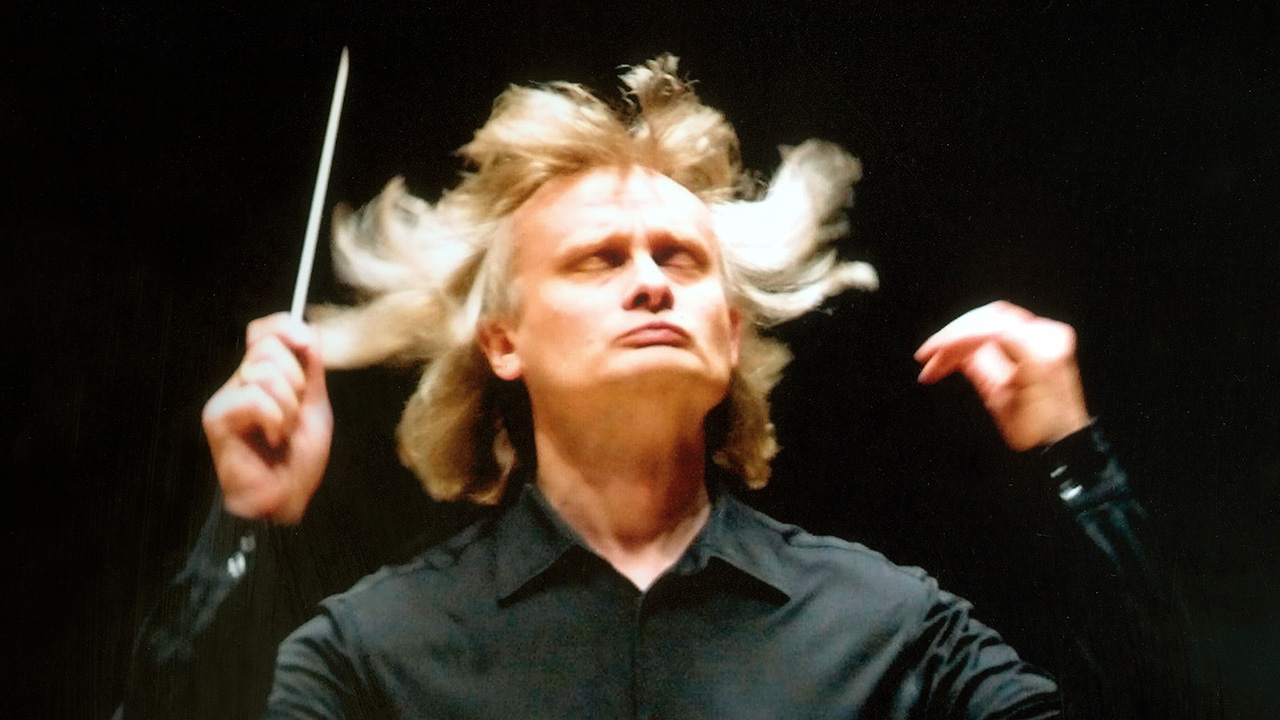Switching up orchestral music for Filipino audiences

The PPO’s new musical director will promote local composers
NEARLY a year after conducting a Philippine Philharmonic Orchestra (PPO) concert as part of the orchestra’s performance season — which also served as a search for a new musical director/conductor — Grzegorz Nowak found himself back in the country and in charge. And he has many plans.
The Cultural Center of the Philippines (CCP) announced early in September that Mr. Nowak had been selected to be the new music director and principal conductor of the country’s leading orchestra.
“I found that the orchestra members are very good and responsive,” Mr. Nowak said of his time last year conducting the PPO. “As I raised my demands in every rehearsal, they would meet the challenge. It is very encouraging,” the Polish conductor said at a press conference introducing him to the public. “I think this orchestra has tremendous potential.”
His experience with the music landscape in the Philippines is admittedly limited, but the time he spent in October of last year motivated him to return.
Mr. Nowak said he conducted his first ever piece of Filipino music — by National Artist Lucio San Pedro — last year during the PPO concert. That concert also featured works by Peter Illich Tchaikovsky and Igor Stravinsky.
“I surveyed many works and I loved it. I enjoyed performing here very much,” he said.
As a sought-after conductor with a long career in opera and concerts, Mr. Nowak previously served as the principal associate conductor of the Royal Philharmonic Orchestra in London. He was also the music director of the Polish National Opera in Warsaw, Poland.
Given all his experience, he specified that the Philippines must prioritize its own artists and musicians.
PROMOTING LOCAL COMPOSERS
One of Mr. Nowak’s first ideas is to promote Filipino composers. By commissioning more original works, the Cultural Center of the Philippines (CCP) and the PPO could encourage young aspiring composers to pursue their passions.
“Every year we can introduce the position of ‘composer in residence.’ This person can write three works during the season for our orchestra,” he told the media.
He said that supporting a home-grown composer is one of the most effective ways a country can empower its people. Mr. Nowak told reporters that this happened around the time of World War II, citing Soviet-era Russian composer Dmitri Shostakovich as an example, among others. “There was heavy oppression during and after the war. The people used writing, arts, music to produce works that no one could suppress, and that’s how they freed themselves from oppression,” he said.
The PPO’s new music director also proposed a modern music festival, which will present both music from all over the world and Filipino music. It could have a competition for young Filipino composers, where the winner can be given a chance to perform his or her work during the festival.
“We need to give the artists freedom to express what they want. We should not restrain them with our own ideas,” said Mr. Nowak.
THE FUTURE OF ORCHESTRAL MUSIC
Freedom to express, teamwork among musicians, and connection with the audience are the reasons live concerts remain as exhilarating as ever, said Mr. Nowak.
“Nowadays, we have many recordings, but a recording, no matter how great it is, will never replace the feeling and excitement of a live concert,” he said.
Always full of stories to tell, Mr. Nowak shared his experience working with Kathleen Battle, the American operatic soprano known for her distinctive vocal range and tone.
“In that concert, she started out tense but then you could feel she was warming up and relaxing, and then she was the queen of the night,” he told reporters. “The reaction of performers, the soloist, the conductor, the orchestra, is dependent very much on the audience.”
For this reason, he believes that all forms of live music — be it operatic or symphonic — can never die out. The challenge for the CCP and the PPO would be to turn Filipino audiences on to that exhilarating feeling.
As the PPO’s principal conductor, his goal is to make it the best team of musicians there is. He likened an orchestra of amazing individual musicians without teamwork to a team of star athletes without teamwork.
“This orchestra has the potential to become a very good team, and that’s what I’m here for — that we work together to make this wonderful team into one of the world’s top orchestras,” he said.
39TH CONCERT SEASON
The PPO’s 39th concert season, titled Switch, refers not just to Mr. Nowak being the new conductor at the helm, but also to the orchestra’s switch from its usual venue — the theaters of the CCP’s main building, which is now undergoing an extensive and prolonged renovation — to the Samsung Performing Arts Theater in Circuit, Makati.
The first concert of the season will be Roman Carnival, on Sept. 15, featuring guest pianist Mark Bebbington. The PPO will perform Hector Berlioz’ Roman Carnival, Edvard Grieg’s Piano Concerto, op. 16, A minor, and Ottorino Respighi’s Pini di Roma.
Oct. 13 will be Italian Night, with a program featuring a commissioned Filipino work, Antonin Dvořák’s Cello Concerto, and Felix Mendelssohn’s Symphony no. 4, op. 90. Cellist Wen-Sinn Yang will be there as a guest performer.
Mr. Nowak and the PPO will then pay homage to the great musicians of Russia in the Russian Masters concert on Nov. 17. The program will include Peter Ilich Tchaikovsky’s Eugene Onegin: Polonaise, Sergei Rachmaninoff’s Piano Concerto no. 2, op. 18, C minor, and selections from Serge Prokofiev’s Romeo & Juliet. Pianist Nikolay Khozyainov will be the guest performer.
To usher in the holiday spirit, Ode to Joy on Dec. 8 will see the PPO perform Wolfgang Amadeus Mozart’s Piano Concerto no. 21, K 467, C major and Ludwig van Beethoven’s Symphony no. 9, op. 125, D minor. Filipino pianist and former CCP president Raul Sunico will perform with the PPO.
For the first concert of the new year, the PPO will perform another commissioned Filipino work, plus Johannes Brahms’s Piano Concerto no. 1, op. 15, D minor and Peter Ilich Tchaikovsky’s Symphony no. 4, op. 36, F minor. The concert on Jan. 12 will be called Fate and feature pianist Jerome Rose as soloist.
Celebrity pianist Krystian Zimerman will then take center stage in Piano Rapture on Feb. 9. On that day, Mr. Nowak will also conduct the PPO on Stanislaw Moniuszko’s The Fairy Tale Overture, Beethoven’s Piano Concerto no. 4, op. 58, G major, and Rachmaninoff’s Symphony no. 2 op. 27.
Don Pasquale, the penultimate concert of the season, focuses on the magic of opera, with a semi-staged opera performance of Gaetano Donizetti’s Don Pasquale on March 8.
The PPO’s 39th season shall culminate with its eighth concert, Fete Francaise, on April 19. The orchestra will perform a commissioned Filipino work, Camille Saint-Saëns’ Introduction and Rondo capriccioso, op. 28 and Maurice Ravel’s Daphnis & Chloé, Suites 1 & 2. Violinist Diomedes Saraza will be the guest performer. — Brontë H. Lacsamana



